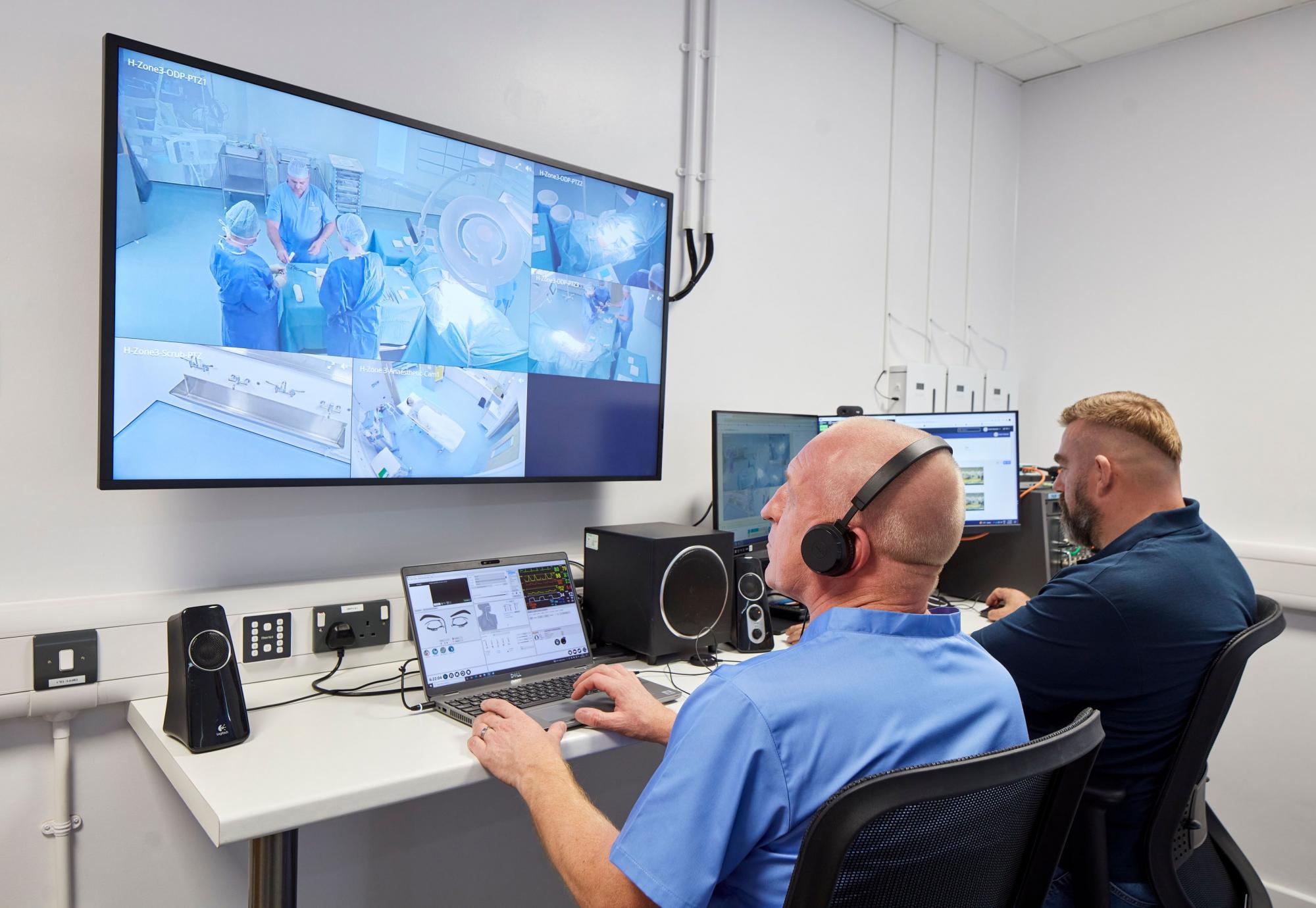The next generation of NHS professionals are benefitting from world-leading facilities at Swansea University, with the higher education institute boasting the largest installation of immersive wall technology in the world across its two sites.
The university’s simulation and immersive learning centre main campus site houses eight immersive wall simulation suites, which are supported by a team of simulation technologists and expert academics — an extra three suites are located at the university’s North Wales campus.
“From first years to final years, students have had the chance to immerse themselves in realistic clinical situations that prepare them for life as a newly qualified doctor,” said Dr David Lee, the simulation lead at Swansea University medical school.
He added: “Besides the accurate portrayal of wards, theatres and primary care environments, the immersive environment also allows data interpretation and clinical problem-solving to be performed together.
“This nurtures the fundamental diagnostic skills of medicine alongside the core communication and teamwork skills that create an efficient and effective NHS workforce.”
Professor Keith Lloyd, pro-vice chancellor and executive dean for the Faculty of Medicine, Health and Life Science at Swansea University, commented: “We are confident that by offering an unrivalled and dynamic learning experience we can encourage more people to consider entering our healthcare workforce, knowing they will receive the very best training here at Swansea.”
The technology is also being used by health boards in Wales, according to Swansea University, helping to further develop the existing NHS workforce, as well as its future recruits.
“We are extremely proud of all we have achieved and the fact we are now at the forefront of healthcare education in the UK,” said Jo Davies, associate professor and head of simulation.
To learn more about how the NHS is nurturing the next line of talent, watch the exclusive online conference hosted by National Health Executive earlier this year, which featured thought leaders from the health service, think tanks, and academia.
Image credit: Swansea University



















